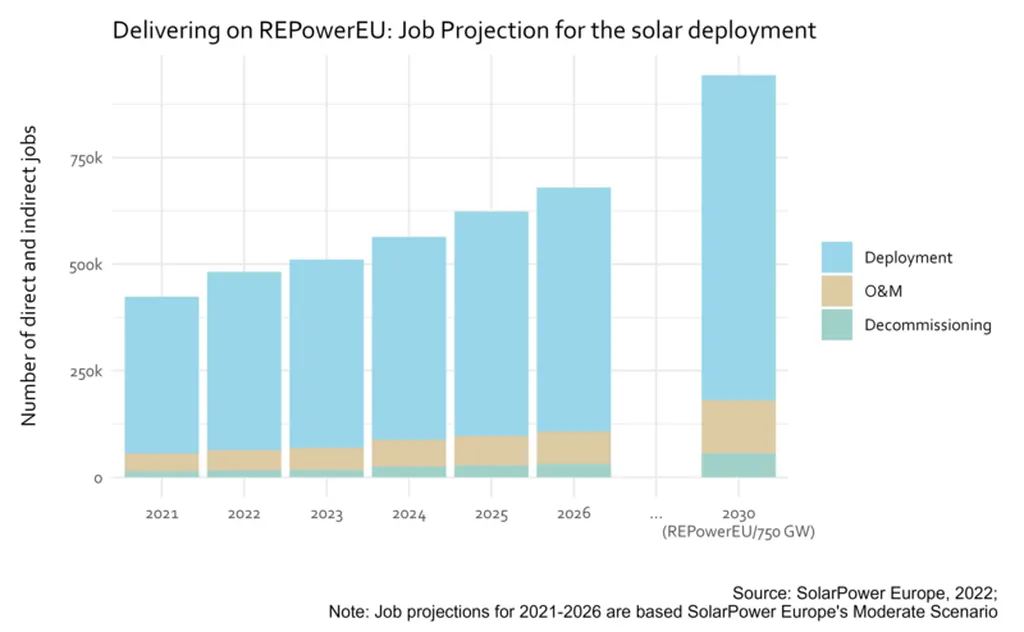In a groundbreaking study published in the Polish journal *Regional Barometer*, Barbara Gradziuk from the University of Life Sciences in Lublin has shed light on the intricate relationship between renewable energy production and employment in the European Union. The research, spanning from 2009 to 2015, offers a comprehensive analysis of how the renewable energy sector has influenced job markets across 28 EU member states, providing valuable insights for policymakers and energy sector stakeholders.
Gradziuk’s study, titled “The Impact of Renewable Energy Production on Employment,” utilized data from Eurostat, EurObserv’ER, and the International Renewable Energy Agency to examine nine key sectors: solid biofuels, biogas, liquid biofuels, geothermal, hydropower, municipal waste, solar photovoltaic, solar thermal, and wind power. The research was prompted by significant changes in the renewable energy market following the European Union’s Climate and Energy Package, which aimed to reduce greenhouse gas emissions and increase the share of renewable energy in the EU’s energy mix.
One of the most compelling findings of the study is the direct correlation between the number of employees in the renewable energy sector and the amount of energy produced. “The data shows that as renewable energy production increases, so does employment in related sectors,” Gradziuk explained. “This is a clear indication that investing in renewable energy not only benefits the environment but also stimulates job growth.”
The study employed panel estimation techniques to analyze the relationship between variables, providing a robust statistical foundation for the findings. The performance indicator used was the number of workers per 1,000 tonnes of oil equivalent of primary energy produced in each sector. This metric allowed for a detailed comparison of employment impacts across different renewable energy sources.
Gradziuk’s research highlights the commercial implications for the energy sector, suggesting that the growth of renewable energy production can drive economic development and create new job opportunities. “The renewable energy sector is not just about sustainability; it’s about economic viability and job creation,” Gradziuk noted. “Understanding this relationship is crucial for policymakers and investors looking to capitalize on the benefits of renewable energy.”
The findings of this study could shape future developments in the renewable energy field by providing a data-driven approach to understanding the employment impacts of different energy sources. As the EU continues to push for a greener future, the insights from Gradziuk’s research could inform policies that maximize both environmental and economic benefits.
For energy sector professionals, the study underscores the importance of renewable energy investments in driving economic growth and job creation. It also highlights the need for continued research and data collection to better understand the evolving dynamics of the renewable energy market.
As the world grapples with the challenges of climate change and energy security, Gradziuk’s research offers a timely and relevant perspective on the role of renewable energy in shaping the future of the labor market. The study’s publication in *Regional Barometer* ensures that these critical insights are accessible to a wide audience, fostering informed discussions and decision-making in the energy sector.

